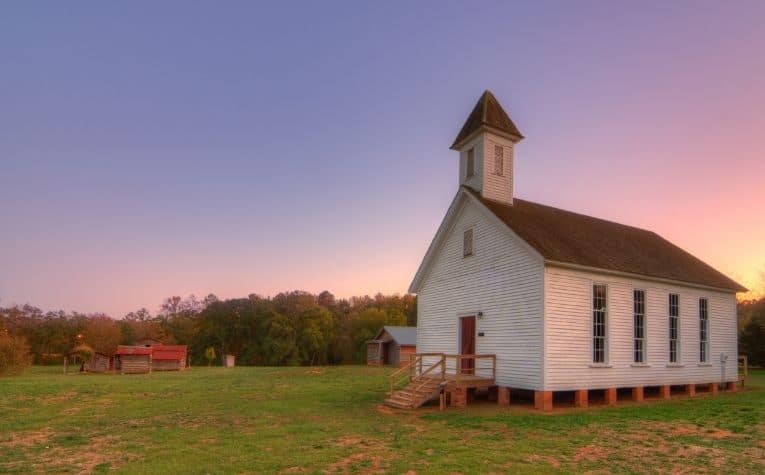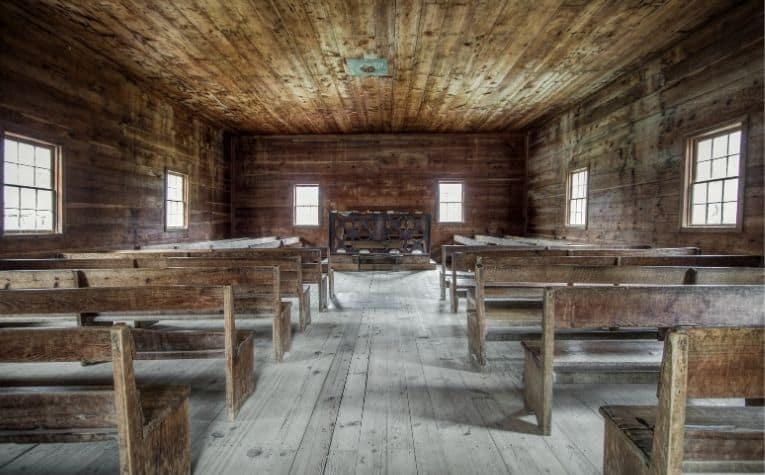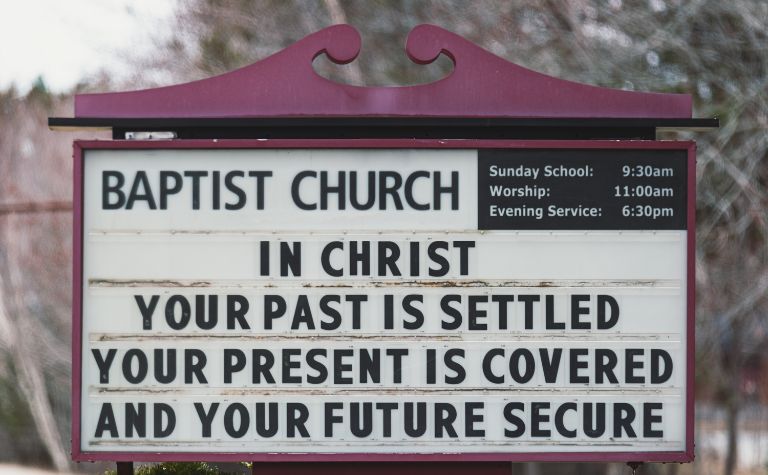Baptist denominations and churches, which date to the 17th century, comprise one of the largest branches of Christianity in the Western world. While Christian churches in Baptist networks and associations have many similarities, they have differences, too.
The Southern Baptist Convention is a type of Baptist church, yet it has distinct aspects when compared to other Baptist churches. The name “Southern” refers to its origins in the southern United States, though in recent years, the denomination has expanded not only in America but around the world.
What does the Southern Baptist church have in common with other Baptist churches? What differences does it have? Why has the denomination experienced so many controversies over the years? Keep reading to learn more.
Also, see Compare First Baptists and Second Baptists to learn more.

How Are Southern Baptist Churches Similar To Other Baptist Churches?
The Southern Baptist Convention has more in common with other conservative, evangelical, and orthodox Baptist churches than it has differences.
It has a unique history because of where it was established, but much of its theology and practice is similar to other like-minded Baptist churches.
In addition to subscribing to the key tenets of Protestant Christianity, Southern Baptist churches have these convictions in common with other Baptist churches, including:
- The autonomy of local churches: All Baptist traditions believe with great conviction that local churches must operate independently. No regional, state, or district authority can select their pastor or leaders, determine their worship, or make decisions that impact the fellowship. The membership of the congregation, in cooperation with the pastor and governing board, makes decisions for each church.
- The fellowship of local churches: Traditionally, Baptist churches, though autonomous, network and associate with other like-minded Baptist churches for the purposes of fellowship, evangelistic and missions work, Christian education, and other ministerial efforts. No decision that one church makes is binding on the decision of another. Their partnership is cooperative. (Also see What Does First Baptist Mean?)
- Separation of church and state: Historically, the importance of church autonomy was a response to the abuses that occurred in Protestantism when federal governments in Europe influenced ecclesiastical affairs for non-ministerial purposes. Though the Baptist tradition has roots in Europe, it found fertile ground in America because of the nation’s laws protecting freedom and religious expression.
- Believers’ baptism: Baptist churches recognize two ordinances, the Lord’s Supper and baptism. The Baptist position on baptism, often referred to as “believer’s baptism,” states that only professing believers should be baptized, implying that infants shouldn’t be baptized. Baptist churches don’t articulate a certain age that a child can or should be baptized; rather, the decision is based on the child’s ability, willingness, and conviction to profess faith in Christ.

How Are Southern Baptist Churches Different Than Other Baptist Churches?
Many of the differences between Southern Baptist churches and other Baptist churches stem from the racism in its past (which it has repented of) and its conservatism in the present (which it takes a stand for).
In other words, it’s not the theology or polity that most distinguishes the Southern Baptist Convention from other Baptist churches but how the denomination has engaged with the world around it. (Also see Do Baptists Believe in the Holy Spirit?)
Did the Southern Baptist Conventions Support Slavery?
Originating and operating in the American South uniquely positioned the denomination to engage with one of the most tragic and horrifying chapters in the nation’s history — slavery.
The Convention originated in the 1840s, just two decades before the Civil War. Like other Christian denominations at the time, the Convention wrestled with decisions and stances related to slaves and slaveholders. (Also, see Baptists vs. Catholics: What’s the Difference?)
The specific issue that created division concerned whether or not slaveholders could be missionaries. The Convention’s mission board, which was located in Boston, Massachusetts, at the time, held that slaveholders couldn’t participate in foreign missions.
As a response to this decision, a network of Baptist churches in the South organized the Southern Baptist Convention in 1845 and established its own missions board.
The SBC Asks For Forgiveness For Its Racist Past
One hundred fifty years later, in 1995, the Convention passed a resolution that denounced racism in its history. It also apologized for decisions that previous leaders had made that encouraged and supported racism within the denomination and outside of it. The resolution called racism a “sin” and intended to begin a new chapter in the Convention’s history.
| Five Key Statements in the 1995 Resolution |
|---|
| “The messengers to the Sesquicentennial meeting of the Southern Baptist Convention, assembled in Atlanta, Georgia, June 20-22, 1995, unwaveringly denounce racism, in all its forms, as deplorable sin.” |
| “We lament and repudiate historic acts of evil such as slavery from which we continue to reap a bitter harvest, and we recognize that the racism which yet plagues our culture today is inextricably tied to the past.” |
| “We apologize to all African-Americans for condoning and/or perpetuating individual and systemic racism in our lifetime; and we genuinely repent of racism of which we have been guilty, whether consciously (Psalm 19:13) or unconsciously (Leviticus 4:27).” |
| “We ask forgiveness from our African-American brothers and sisters, acknowledging that our own healing is at stake.” |
| “We hereby commit ourselves to eradicate racism in all its forms from Southern Baptist life and ministry.” [1] |
At the time, The New York Times called the resolution “dramatic” and “striking”: “The resolution was also striking because it addressed the very schism over slavery that created the denomination in the first place.”
It continues, “In a move that foreshadowed the secession by Southern states on the eve of the Civil War, the denomination was formed in 1845 by Southern churchmen who broke from northern Baptists after a national Baptist agency refused to appoint a slaveholder as a missionary.” [2]
At the beginning of the 21st century, there were over 2,000 African-American congregations in the Southern Baptist convention.

Is the Southern Baptist Convention Conservative or Liberal?
Today, the Southern Baptist Convention maintains and defends conservative stances on theological and social issues. There are internal and external factors that challenge their conservatism:
External factors: Like many other Protestant denominations in the late 20th and early 21st century, the Southern Baptist Convention has wrestled with external pressure on progressive social issues, like gay marriage. (Also see What Bible Translation Do Baptists Read?)
The Convention is committed to its conservative positions, but not necessarily because they are “conservative,” but because the progressive positions violate the teachings of Scripture.
Internal factors: Various movements within the Southern Baptist church have led to groups of people separating from it and forming their own networks and associations. Modern controversies have included topics such as:
- Women pastors: The Convention maintains that while numerous church and ministerial roles are open to women, the position of pastor in only open to men who meet the qualifications described in Scripture.
- Liberal theology: Some local churches have welcomed liberal positions on core doctrines of the Christian faith. They have doubted the inspiration of Scripture; they question the exclusivity of Christianity, and they support modern social causes that conservatives believe are not biblical. The Southern Baptist Convention believes that liberal theology is not biblical and must be rejected.
- Anti-American sentiment: Some Baptists around the world believe that American churches are more committed to capitalism than missions work. The Southern Baptist Convention believes that traditional American values, though imperfect, align with Scripture to a large degree.
Please see the related articles below.
References:
[1] Source
[2] Source
[3] Source
Related Questions
Baptist and evangelical churches are numerous in America, and the influence of each tradition has also spread to different continents and countries. As a result, many people have heard the terms...
The Baptist tradition, like other branches of the Christian faith, has a variety of expressions. The different names of denominations and churches within the tradition reflect this. Understanding...
